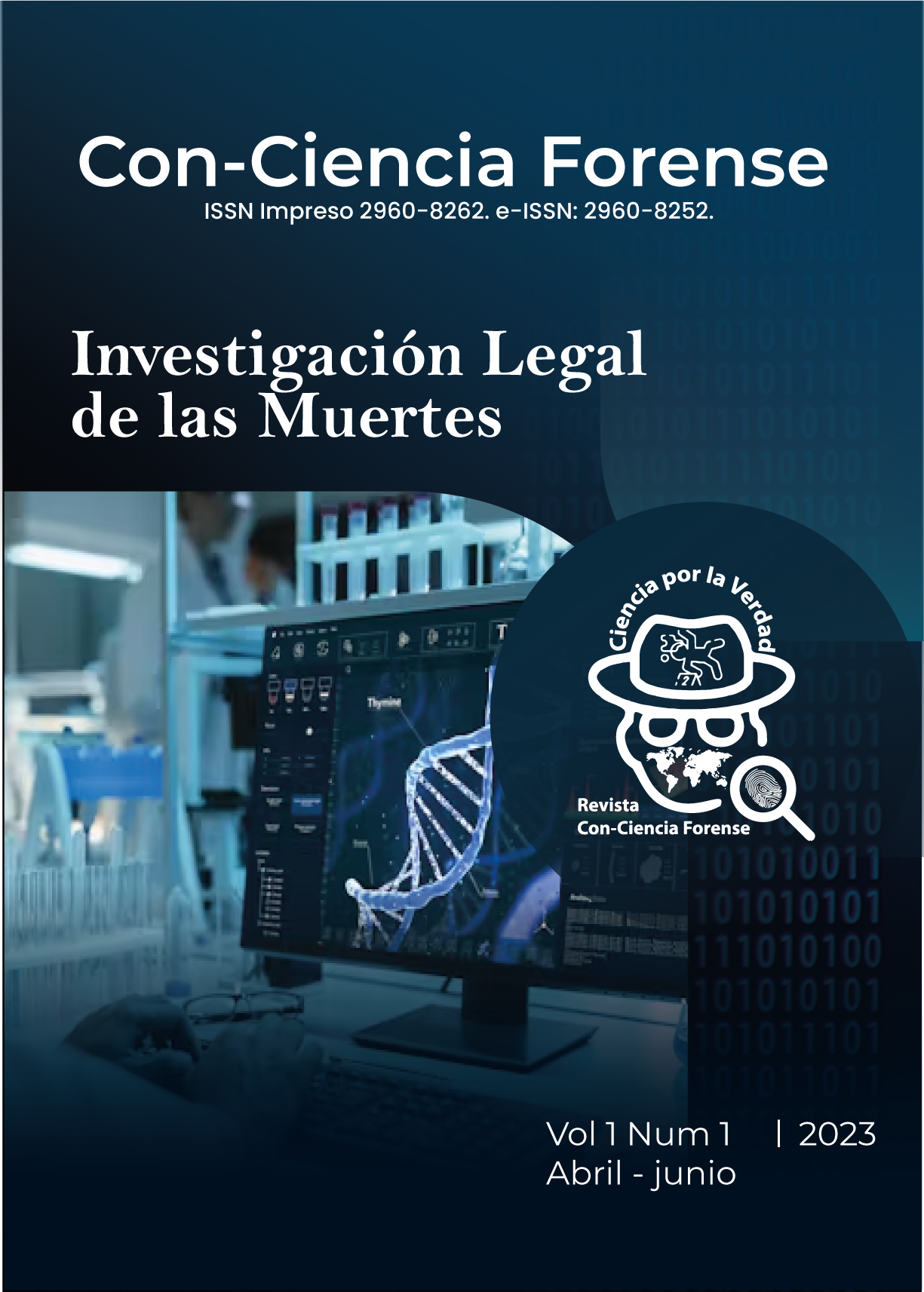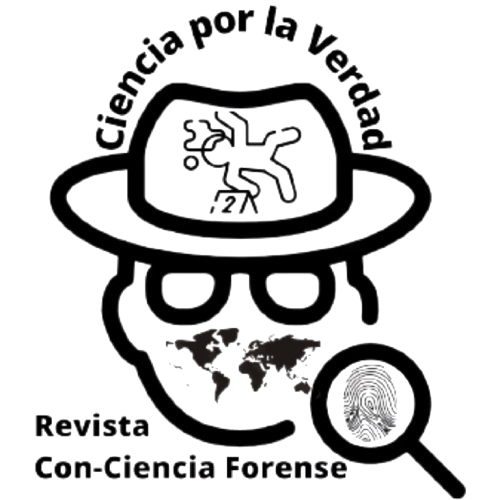Archives
-
Forensic and Digital Horizons
Vol. 2 No. 2 (2024)Volume 2, Issue 2 (2024) of Con-Ciencia Forense, titled “Forensic and Digital Horizons,” offers a bold look at the emerging frontiers of forensic science in the digital age. This issue explores innovations such as artificial intelligence for scene reconstruction, automated object detection, virtual and augmented reality as tools for immersive analysis, and digital forensics in the face of increasingly sophisticated crimes.
-
Convergence of Disciplines: Forensic and Legal Applications
Vol. 2 No. 1 (2024)Volume 2, Number 1 (2024) of Con-Ciencia Forense, focused on the theme “Convergence of Disciplines: Forensic and Legal Applications”, presents a comprehensive vision of how the interweaving of multiple fields of knowledge enhances the quality, effectiveness, and legitimacy of justice. This issue also highlights the challenges of such convergence, particularly the need for methodological standards, technological interoperability, interdisciplinary training, professional ethics, and the protection of human rights.
-
Forensic Investigation, Science, Technology, and Behavior
Vol. 1 No. 3 (2023)Volume 1, Number 3 (2023) of Con-Ciencia Forense, with the theme “Forensic Investigation: Science, Technology, and Behavior”, offers an interdisciplinary overview that combines methodological rigor, technological innovation, and an understanding of the human factor. This issue presents works that range from the application of artificial intelligence and machine learning to the digital analysis of evidence and the reconstruction of crime scenes, to studies on criminal behavior that inform psychological profiling and preventive intervention strategies. It also reflects on ethical challenges, the reliability of new technologies, the standardization of procedures, and the integration of forensic science with the social sciences.
-
Unveiling the Mysteries: Forensic Entomology and Psychology in the Pursuit of Truth
Vol. 1 No. 2 (2023)Volume 1, Number 2 (2023) of Con-Ciencia Forense, focused on the theme “Unveiling the Mysteries: Forensic Entomology and Psychology in the Pursuit of Truth”, brings together articles of great relevance for the scientific and forensic community. The papers explore how insects act as silent witnesses at crime scenes and how psychology applied to criminal investigation interprets mental traces, behavioral profiles, and subjective clues. This international issue seeks to build bridges between the biological and the psychological, between material evidence and human narrative, through studies derived from research processes. Altogether, it offers readers an interdisciplinary journey that unravels the enigmas lying at the boundaries between death, mind, and justice.
-

Legal investigation of the deaths
Vol. 1 No. 1 (2023)The organization Ciencia Por la Verdad S.A.S., in this new stage, embarks on a publishing journey grounded in its experience in specialized training in forensic sciences such as Anthropology, Odontology, Genetics, Toxicology, Legal Medicine, Entomology, and Criminalistics, among others, as well as Criminology and Criminal Investigation. This endeavor results in the first issue of the International Journal of Forensic Sciences and Criminal Investigation — Con-Ciencia Forense — especially conceived to highlight Latin American development in these fields. This contribution is essential for understanding how our region provides a wealth of forensic knowledge related to its unique casework. Although there are already specialized journals, this publishing project is aimed at disseminating scientific, reflective, and systematic writings, featuring outputs from the specialized training programs of the Organization and its strategic — though not exclusive — partners: the Instituto Colbert (Argentina), the Popular University of Health, Education, Security, Science and Technology of Oncativo, and the Northern International University.
Public International Law has broad implications concerning the Legal Investigation of Deaths, encompassing diverse areas such as Human Rights violations (International Human Rights Law), serious offenses related to war crimes (International Humanitarian Law), and crimes against humanity (International Criminal Law). Investigating such cases requires judicial processes supported by effective documentation practices of the facts that occurred, within the framework of the Right to the Truth, which involves three key elements: full knowledge of the events and their motivations; identification and sanctioning of those responsible; and reparation for the victims.
Within these good practices of effective documentation — which States must ensure to prevent the recurrence of cruel acts against individuals — various forensic specialties play a crucial role. These are framed within Forensic Sciences for the Legal Investigation of Deaths along four main axes: Human Identification; determination of Cause, Manner, and Time of Death; documentation of injuries; and the criminal context that motivated the punishable act. All these efforts adhere to internationally established minimum standards such as the Minnesota Protocol (2016) and the Istanbul Protocol (2022).






